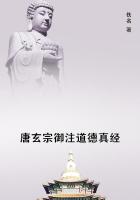"There is fortune, but what is the good of it if it is buried in the earth? It is just riches wasted with no profit to anyone, like chaff or sheep's dung, and yet there are riches there, lad, fortune enough for all the country round, but not a soul sees it! It will come to this, that the gentry will dig it up or the government will take it away. The gentry have begun digging the barrows. . . . They scented something! They are envious of the peasants' luck! The government, too, is looking after itself. It is written in the law that if any peasant finds the treasure he is to take it to the authorities! I dare say, wait till you get it! There is a brew but not for you!"The old man laughed contemptuously and sat down on the ground. The overseer listened with attention and agreed, but from his silence and the expression of his figure it was evident that what the old man told him was not new to him, that he had thought it all over long ago, and knew much more than was known to the old shepherd.
"In my day, I must own, I did seek for fortune a dozen times," said the old man, scratching himself nervously. "I looked in the right places, but I must have come on treasures under a charm. My father looked for it, too, and my brother, too -- but not a thing did they find, so they died without luck. A monk revealed to my brother Ilya -- the Kingdom of Heaven be his-- that in one place in the fortress of Taganrog there was a treasure under three stones, and that that treasure was under a charm, and in those days -- it was, I remember, in the year '38 -- an Armenian used to live at Matvyeev Barrow who sold talismans. Ilya bought a talisman, took two other fellows with him, and went to Taganrog. Only when he got to the place in the fortress, brother, there was a soldier with a gun, standing at the very spot. . . ."A sound suddenly broke on the still air, and floated in all directions over the steppe. Something in the distance gave a menacing bang, crashed against stone, and raced over the steppe, uttering, "Tah! tah! tah! tah!" When the sound had died away the old man looked inquiringly at Panteley, who stood motionless and unconcerned.
"It's a bucket broken away at the pits," said the young shepherd after amoment's thought.
It was by now getting light. The Milky Way had turned pale and gradually melted like snow, losing its outlines; the sky was becoming dull and dingy so that you could not make out whether it was clear or covered thickly with clouds, and only from the bright leaden streak in the east and from the stars that lingered here and there could one tell what was coming.
The first noiseless breeze of morning, cautiously stirring the spurges and the brown stalks of last year's grass, fluttered along the road.
The overseer roused himself from his thoughts and tossed his head. With both hands he shook the saddle, touched the girth and, as though he could not make up his mind to mount the horse, stood still again, hesitating.
"Yes," he said, "your elbow is near, but you can't bite it. There is fortune, but there is not the wit to find it."And he turned facing the shepherds. His stern face looked sad and mocking, as though he were a disappointed man.
"Yes, so one dies without knowing what happiness is like . . ." he said emphatically, lifting his left leg into the stirrup. "A younger man may live to see it, but it is time for us to lay aside all thought of it."Stroking his long moustaches covered with dew, he seated himself heavily on the horse and screwed up his eyes, looking into the distance, as though he had forgotten something or left something unsaid. In the bluish distance where the furthest visible hillock melted into the mist nothing was stirring; the ancient barrows, once watch-mounds and tombs, which rose here and there above the horizon and the boundless steppe had a sullen and death-like look; there was a feeling of endless time and utter indifference to man in their immobility and silence; another thousand years would pass, myriads of men would die, while they would still stand as they had stood, wit h no regret for the dead nor interest in the living, and no soul would ever know why they stood there, and what secret of the steppes was hidden under them.
The rooks awakening, flew one after another in silence over the earth. No meaning was to be seen in the languid flight of those long-lived birds, nor in the morning which is repeated punctually every twenty-four hours,nor in the boundless expanse of the steppe.
The overseer smiled and said:














